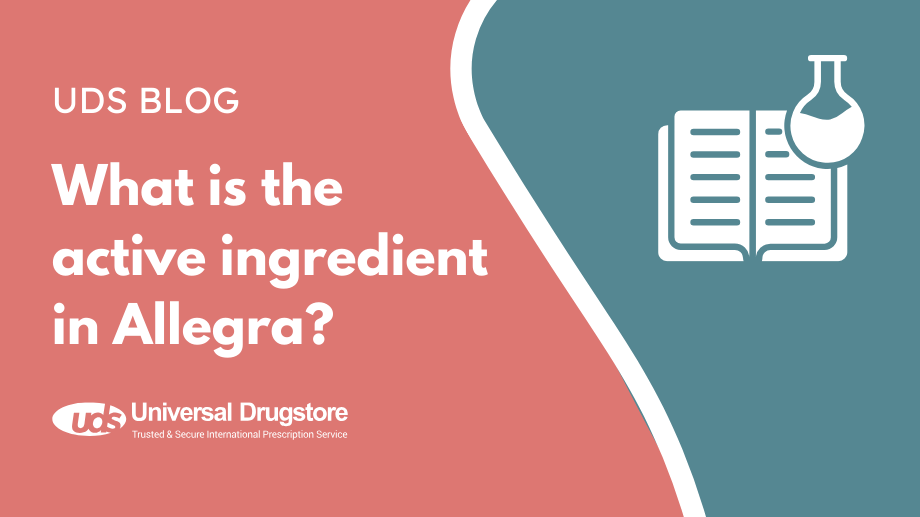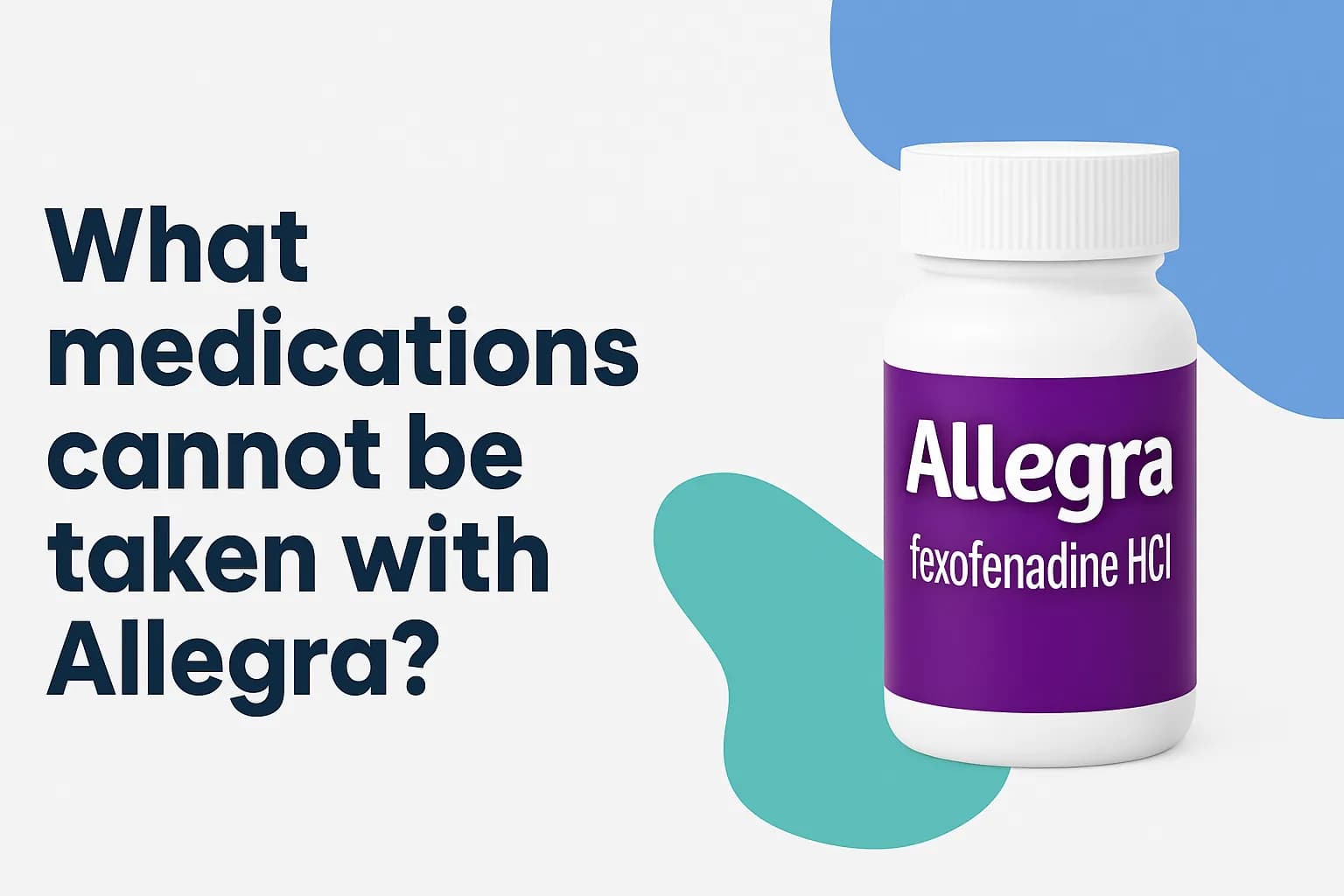Which is better, Allegra or Zyrtec?

Allergies are common, with more than 100 million Americans experiencing year-round or seasonal allergy symptoms such as runny nose, itchy eyes, sneezing, and more each year. Luckily, there are several over-the-counter (OTC) allergy medications that can help like Zyrtec (cetirizine) and Allegra (fexofenadine). Both medications are known as second-generation antihistamines and are less likely to cause drowsiness than older first-generation antihistamines like Benadryl (diphenhydramine). They are both available in several formulations. Zyrtec comes in pills, chewable tablets, orally disintegrating tablets, and liquids. Allegra is available as 12-hour and 24-hour tablets, as well as a liquid and quick-dissolving tablets if you have a hard time swallowing pills.
In general, Zyrtec and Allegra are all similarly effective for allergy relief. However, some studies suggest Allegra might be a little more effective for eye-related symptoms. Other studies have shown that Zyrtec’s effects may last longer than Allegra’s. However, most experts do not recommend one of these 2 allergy medicines over the other.
Most people find that one antihistamine works better for them during allergy season or causes fewer side effects. But if you are not sure which one to try first, there are a few differences between them to consider. For example, Zyrtec typically starts working slightly faster than Allegra, but it is more likely to cause sedation (drowsiness). Allegra should not be taken with grapefruit juice while Zyrtec has no reported food interactions.
In general, antihistamines are more effective if you start them before you are exposed to an allergen such as dust mites, pet dander, pollen, ragweed, and molds. And Zyrtec and Allegra can be taken every day if needed.
Keep reading as we compare Allegra vs. Zyrtec on how they work, what side effects you can expect, and what the alternatives are.
Allegra vs. Zyrtec: How do they work?
Allegra contains the active ingredient fexofenadine hydrochloride while Zyrtec contains cetirizine. They are both oral antihistamines. They work by blocking the effects of histamine, which is a chemical released by your immune system when you come in contact with an allergen. It causes allergy symptoms, such as runny nose, itchy nose, sneezing, and itchy or watery eyes. By blocking histamine, Allegra and Zyrtec help treat allergic rhinitis (more commonly called allergies or hay fever) and hives (urticaria).
Allegra vs. Zyrtec: What are their common side effects?
Allegra is considered a non-sedating antihistamine because it is less likely to cause drowsiness than older antihistamines like Benadryl. However, you can experience drowsiness when taking these allergy medications. Zyrtec is more likely to cause this side effect.
Other possible side effects of Zyrtec include:
- Dry mouth
- Sore throat
- Upper respiratory infection
The most common side effects of Allegra include:
- Headache
- Upper respiratory tract infection
- Back pain
- Nausea
- Drowsiness
Rare but serious side effects may include:
- Allergic reactions
- Excessive drowsiness with alcohol or sedating medications
- Trouble urinating (especially with an enlarged prostate)
- Worsening of glaucoma
Who can take Allegra and Zyrtec?
Allegra is typically used in adults and children 2 years of age and older.
- Adults and children 12+: 60 mg twice daily or 180 mg once daily
- Children 2–11: 30 mg twice daily
Zyrtec is also used in adults and children 2 years of age and older.
- Adults: 10 mg once daily
- Adults 65+: 5 mg once daily
- Children 6+: 5–10 mg once daily
- Children 2–5: 2.5–5 mg once daily
Consult your healthcare provider for children under 2 years or if you have kidney or liver problems.
What drug interactions are there with Allegra and Zyrtec?
Consult your healthcare provider before starting Allegra or Zyrtec if you take other medications. Notable interactions include:
Allegra interactions:
- Fruit juices (apple, orange, grapefruit): avoid within 2 hours of dose
- Antacids with aluminum or magnesium: avoid within 2 hours
- Erythromycin and ketoconazole: may increase Allegra levels
Zyrtec interactions:
- Theophylline (Theo-24): dose adjustment may be needed
- Other sedating medications or substances (alcohol, marijuana, opioids, etc.): may cause excess drowsiness
Discuss with your doctor if you have kidney or liver disease before using these medications.
What are some alternatives to Allegra and Zyrtec?
If oral antihistamines are not effective, alternatives include:
- Steroid nasal sprays: Flonase, Nasacort (may take 2 weeks for full effect)
- Decongestants: Sudafed (pseudoephedrine) for nasal congestion
- Antihistamine nasal sprays: Astelin (azelastine)
- Leukotriene blockers: Singulair (montelukast)
Be sure to consult a healthcare provider to find the best treatment for your condition.
Can you take Allegra or Zyrtec while pregnant?
According to the American College of Obstetricians and Gynecologists (ACOG), several OTC antihistamines appear to be safe for use during pregnancy.
First-generation antihistamines like Benadryl and Chlor-Trimeton may be used but can cause drowsiness. Newer options like Allegra and Zyrtec are preferred for their lower drowsiness risk. Always consult your OB-GYN before taking any allergy medications during pregnancy.
Related Medications
- Claritin (loratadine)
- Xyzal (levocetirizine)
- Clarinex (desloratadine)
- Zyrtec-D (cetirizine/pseudoephedrine)
- Allegra-D (fexofenadine/pseudoephedrine)
Sources
- Antihistamines. American Academy of Family Physicians. Accessed June 5, 2024.
- Zyrtec. Zyrtec Professional. Accessed June 5, 2024.
- Hong D, et al. Braz J Otorhinolaryngol. 2023. Accessed June 5, 2024.
- Allegra Allergy. DailyMed. Accessed June 5, 2024.
- Fexofenadine. MedlinePlus. Accessed June 5, 2024.







